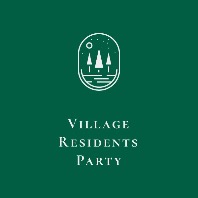VRP Archives of Village of Brookville Documents
In the matter of the Soldavin letter:
At a special meeting of the Board of Trustees of the Village of Brookville that was held on June 28, 1988, it was stated that the Village of Brookville wrote to Post College/Long Island University regarding a spree of malicious mischief that took place over the course of a month. A response was received from Raymond C. Soldavin, Vice President for External Affairs, who gave a detailed response and mentioned LIU’s payment in lieu of taxes (PILT) and the $50K that they paid in police overtime reimbursement. Implicit in his response was a clear sense of entitlement as a result of their payment in lieu of taxes. They seemed to imply that the PILT was a sort of “pay one price” deal that included any and all fees, fines and other charges vis-a-vis the Incorporated Village of Brookville. The general tone of the letter was, ‘What are you complaining about? We paid our PILT.’
I wrote to the Incorporated Village of Brookville and requested a copy of Soldavin’s letter, as it seemed to shed light on the nature of the Brookville – Post College relationship, which was an arrangement about which the village government was quite secretive. The village was particularly secretive about the financial aspects of the arrangement. The responses from the village were as follows:
July 5, 1988
Mr. Michael Dowden
(address deleted)
Re: Freedom of Information Law
Dear Michael:
With regard your request of June 29, 1988 the Board of Trustees feels that the June 6, 1988 letter from L.I.U. covers privileged information concerning criminal activities and investigation. Hence, we cannot supply you with a copy of same.
I am also requested to advise that future requests for information should be made by the (name of organization deleted) on official stationery under the President’s signature.
Very truly yours,
Robert D. Kops
RDK/ds
cc: Hon. Michael P. Galgano
cc: Mr. Steven P. Glaser
12 July 1988
Mr. M. J. Dowden
(address deleted)
Dear Mr. Dowden:
This will serve to acknowledge receipt of your letter of 7/8/88 requesting a copy of correspondence to the Village from Long Island University.
As stated in the 7/5/88 letter from the Village Attorney to you “…the Board of Trustees feels that the June 6, 1988 letter from L. I. U. covers privileged information concerning criminal activities and investigation. Hence, we cannot supply you with a copy of same.”
Very truly yours,
Jean G. Pailet
Clerk / Treasurer
cc: M. Galgano
R. Kops
S. Glazer
July 22, 1988
Mr. Michael Dowden
(address deleted)
Re: Freedom of Information Law
Dear Mr. Dowden:
I am writing in response to your letter of July 18, 1988 in which you address an appeal to the previous denial of your request for a copy of the June 6, 1988 letter from Long Island University.
As you know, deniable records include records or portions thereof that:
(e) are compiled for law enforcement purposes and which if disclosed would:
i. interfere with law enforcement investigations or judicial proceedings;
ii. deprive a person of a right to a fair trial or impartial adjudication.
iii. identify a confidential source or disclose confidential information relative to a criminal investigation; or
iv. reveal criminal investigative techniques or procedures, except routine techniques and procedures;
It is our judgment that the pertinent letter from Long Island University is covered by the above exemption.
The Village of Brookville regrets that it cannot accommodate you in this matter.
Very truly yours,
Robert D. Kops
cc: Hon. Michael Galgano and Board of Trustees
Jean Pailet
Brookville Taxpayers Association
New York State Committee on Open Government
It is worth noting that the Board of Trustees can act only in the context of an official, publicly announced meeting. Between the time that my request was made and the dates on their letters (copied above), no such meetings were held. I wrote to the Committee on Open Government and requested a written legal opinion. An opinion, dated August 26, 1988, was provided. The village government ignored the written opinion and never provided public access to the letter.
